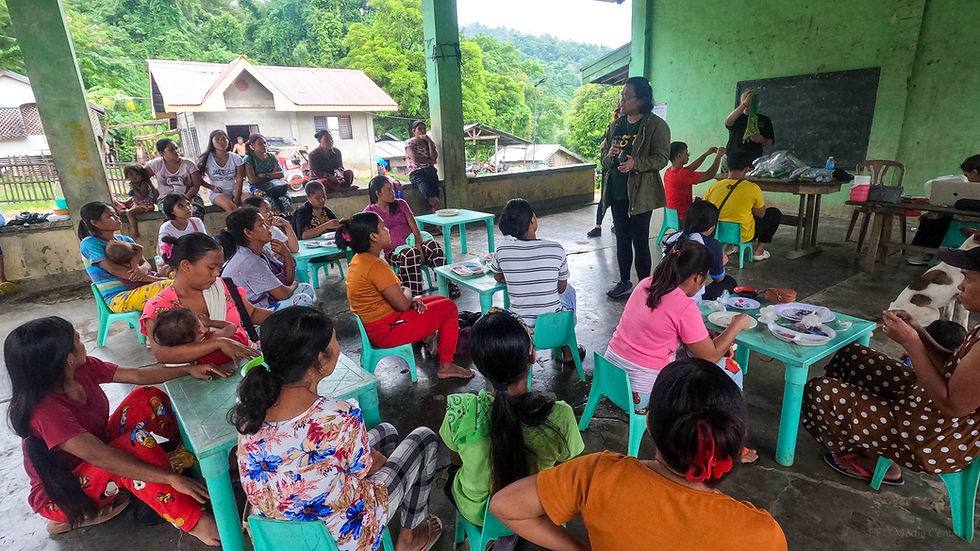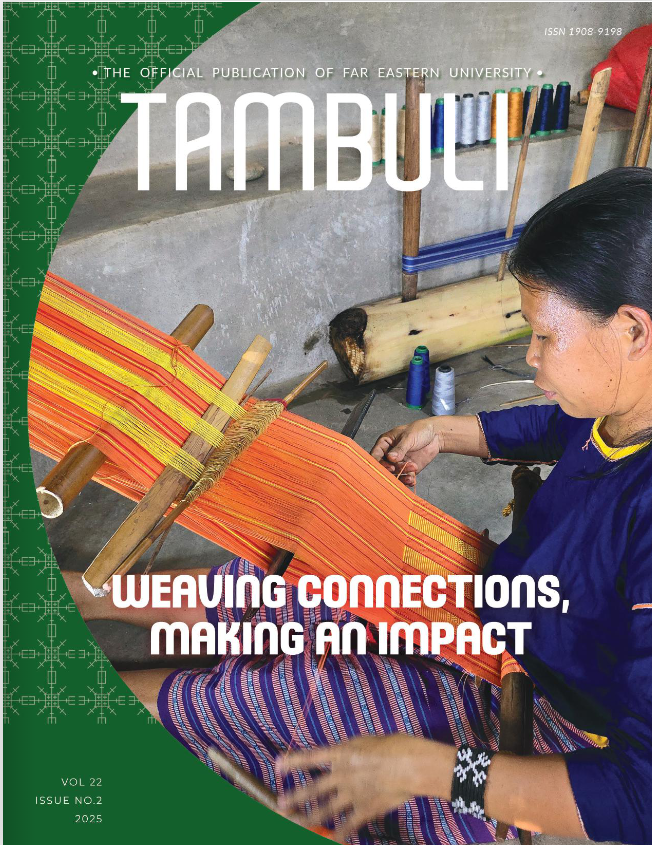Connections that matter
- Sep 5, 2025
- 4 min read
Updated: Sep 6, 2025
How community extension services thread knowledge, compassion, and sustainability to make a real impact.

In the quiet mountains of Mindoro, a Mangyan elder once offered a small but significant gift, boiled cassava. It was dry, without salt, but it was all they had. “Sa bundok, kapag may asin ka, may kaya ka. (In the mountains, where the Mangyans live, you are considered well-off if you have salt),” recalled Luzelle Anne Ormita, Far Eastern Univeristy (FEU) Community Extension Services (CES) director. The moment was humbling. It told a truth she has seen time and time again through her work in FEU CES, that the most generous people are those who may not have much.
This profound generosity, the act of giving without hesitation, has become a guiding thread in Ormita’s mission. But beyond charity, FEU CES is about something more enduring: weaving together disciplines, skills, and people to create real, lasting change.
Interlacing disciplines
Community work is often seen as a simple act of service, but in FEU’s approach, it is more than that. It is an intricate tapestry of knowledge and action, where each discipline plays a vital role in strengthening the weave. Instead of working in silos, faculty and students collaborate, their expertise blending to craft sustainable solutions.
A culinary instructor teaches communities how to bake bread not just to nourish, but to provide a livelihood. A chemistry professor shares the science behind soap-making, helping families create their own hygiene products to sell. International Studies faculty develop educational modules on workers’ rights, ensuring that persons deprived of liberty have the knowledge to reintegrate into society.
“This is what makes CES grounded in purpose,” said Ormita in a mix of English and Filipino. “We’re not just giving aid; we’re weaving knowledge into communities, making sure that what we contribute lasts.”For those at the helm of these initiatives, the experience has been transformative.
“Before joining CES, I was used to working in an environment where everyone came from the same discipline. We spoke the same language and had similar mindsets. But in community work, you meet people from all walks of life. You realize that each person has unique strengths and contributions,” said Ormita.
She also learned that leadership is not about doing everything alone but about trusting others.
“There was a time when I would take on tasks myself, thinking it was easier that way. Now, I’ve learned to delegate and rely on others’ expertise. It’s humbling to admit when something is beyond your skillset and to ask for help,” said Ormita.
Understanding communities
Beyond technical expertise, community engagement requires sensitivity and humility. Each community has its own patterns, strengths, and struggles. To truly help, one must first listen.
“In grassroots work, we are the ones who must adjust, not them,” she emphasized. Simple things like wearing modest clothing in certain communities or speaking in Filipino instead of English make a difference in building trust and respect. Another challenge in institutional community work is ensuring that engagement goes beyond obligation. The goal is for students, faculty, and staff to develop a genuine passion for service.
“Forcing people to participate rarely leads to meaningful work. I prefer to work with those who are truly invested. And most of the time, students and volunteers who join CES do care deeply about the communities we serve.”
One memorable transformation was that of a MedTech student who had never been exposed to life outside her privileged upbringing. “She was used to being dropped off by hers parents. Then, she saw the realities of underserved communities firsthand. It was an eye-opener for her, making her realize how much she had taken for granted.”
These experiences leave lasting imprints. “Time and again, I hear students say, ‘I wouldn’t have learned this in a classroom.’ That’s the essence of real-world learning.”
Sustainable change
The true success of CES lies in the seamless weaving of teamwork, sustainability, and empowerment. The vision is not just about outreach, it’s about ensuring that the work continues, that the threads hold strong long after FEU volunteers have left.
Ormita recalled a moment of validation when an ASEAN University Network-Quality Assurance assessor commended her for doing an excellent job. But she is quick to shift the spotlight. “This isn’t about me. It’s about the many hands that have worked together, the people who have poured their hearts into this mission,” she said.
Just like the cassava offered by the Mangyan elder, the knowledge FEU CES shares may seem little, but its impact, when woven into the fabric of communities, can sustain lives and inspire change for generations.
###

Weaving Connections, Making an Impact In this issue of Tambuli, we focus on Corporate Social Responsibility (CSR) and Community Extension Services (CES) of the FEU Group of Schools and partners, highlighting their efforts, best practices, and inspiring initiatives that contribute to sustainable development and upliftment of communities. You may access the complete issue here: https://heyzine.com/flip-book/9d05ee9a7f.html




Comments